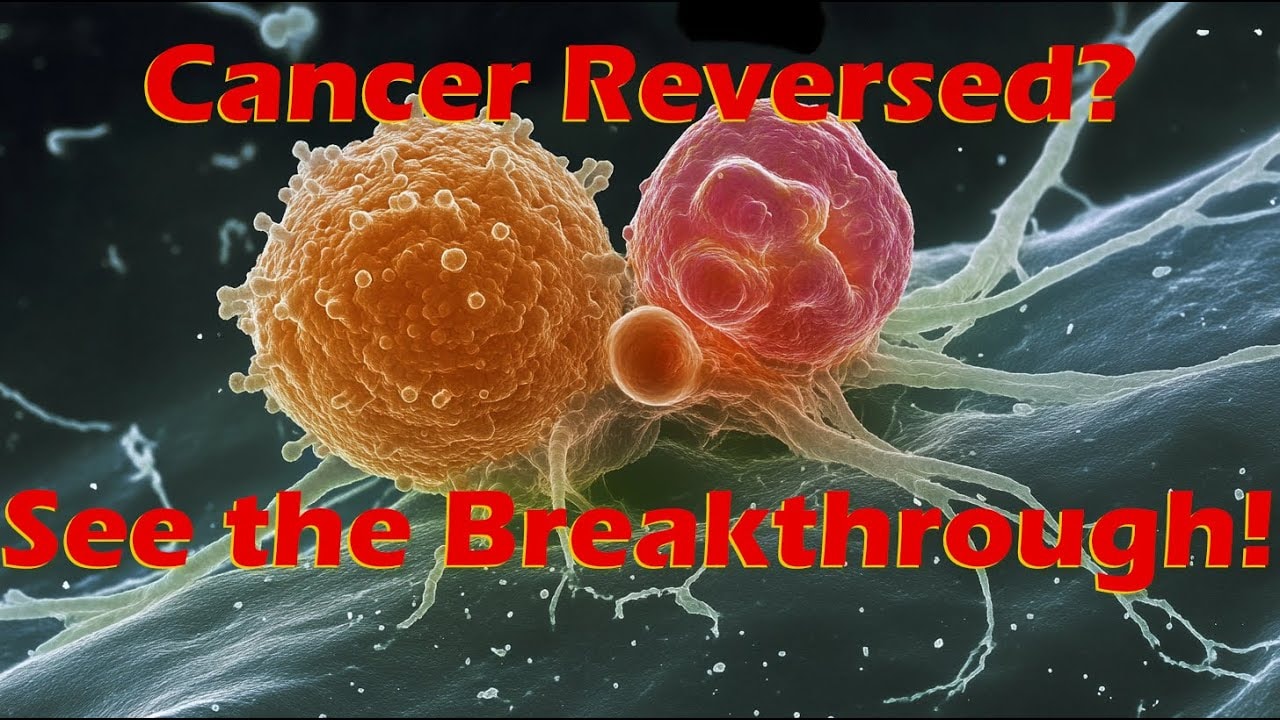Breakthrough technology opens new opportunities for cancer patients
Scientists at the Korea Advanced Institute of Science and Technology (KAIST) have developed a groundbreaking new technology that can turn some cancer cells into normal cells without killing them.
This new approach provides a systematic way to return cancer cells to a normal state. This mechanism not only interferes with the biological markers that characterize cancer cells but also restores the inherent functions of healthy cells.
If successfully researched and applied, this method promises to create a breakthrough in medicine, opening up the potential to revolutionize cancer treatments in the future, helping to significantly improve treatment effectiveness and quality of life for patients.

This method not only opens up a breakthrough direction in cancer treatment but also brings outstanding advantages in helping to minimize side effects commonly found in traditional therapies such as chemotherapy or radiotherapy.
At the same time, it also overcomes the risk of drug resistance, a major challenge in current cancer treatment. The combination of effectiveness and safety of this method promises to improve the quality of treatment and significantly improve the lives of patients.
The concept of “cancer reversal” – that is, returning cancer cells to a differentiated state and losing their malignant properties – has long been considered a promising approach in cancer treatment.
Instead of focusing solely on killing cancer cells, this approach aims to restore normal cell function, forcing them back into a differentiated state similar to healthy cells.
This is especially important because cancer cells often exhibit “undifferentiated” characteristics, meaning they lose the specialized functions inherent in normal cells, leading to uncontrolled growth and strong invasiveness.
By regenerating the expression of genes responsible for differentiation, which are often mutated in cancer cells, we can reactivate these genes, restoring normal cell function.
In some rare cases, this process can even lead to a phenomenon called “transdifferentiation,” where cancer cells not only revert to a differentiated state, but also transform into a completely different cell type.
For example, breast cancer cells can be rerouted to develop into liver cells with specialized functions, a promising advance that opens up the possibility of controlling and treating cancer at its root by interfering with the cell's genetic process.
Previous studies have shown the ability to reverse cancer cell death in diseases such as myeloid leukemia, breast cancer and hepatocellular carcinoma, a common form of liver cancer.
However, to date, there has been no clear and systematic identification of the “master regulators”—the genes or proteins that play a key role in controlling and directing this differentiation or transformation process.
Identifying the key regulators is a major breakthrough, as it opens up the possibility for scientists to intervene, manipulate and reprogram cancer cells, forcing them to return to a normal state or convert them into other cell types.

This not only offers alternative therapies but can also be effectively combined with conventional methods, creating more comprehensive and sustainable cancer treatment strategies.
In the latest study, a research team led by Professor Kwang-Hyun Cho, Department of Bioengineering and Brain Engineering at KAIST, introduced a groundbreaking technology that allows colon cancer cells to be reprogrammed and converted back to a normal cell state.
This discovery not only opens up hope for a completely new cancer treatment method but also lays the foundation for further advances in controlling and eliminating cancer cells from the root through regulating genetic and molecular mechanisms inside the cell.
The team focused on a key observation during carcinogenesis, the process by which normal cells gradually transform into cancer cells. Based on this, the team developed an innovative technology to digitally replicate the gene network that controls normal cell differentiation.
Through detailed and precise simulations, they were able to systematically identify key “molecular switches” that play a role in activating and maintaining the normal state of differentiation. This discovery opens up enormous potential for reprogramming cancer cells, returning them to their original, healthy state.
When these important “molecular switches” are activated in colon cancer cells, something magical happens. The cells begin to return to their normal state, regaining the characteristics of healthy cells.
The effectiveness of this process is not only limited to simulation but also convincingly demonstrated through molecular and cellular experiments on animal models. The obtained results have confirmed the great potential of this method in reprogramming cancer cells, opening up new prospects for breakthrough cancer therapies.
This study demonstrated that reversing cancer cells is possible through the construction and analysis of digital copies of gene networks in cancer cells.
Rather than relying on chance discoveries, this approach provides a systematic and precise scientific roadmap to intervene in disease mechanisms at the molecular level.
More importantly, this discovery opens up the prospect of developing completely new cancer therapies that not only target cancer cells but also have the ability to reprogram them to return to their original healthy state. If expanded, this method could be applied to many different types of cancer, marking a breakthrough in the fight against this disease.
"The fact that cancer cells can be converted back into normal cells is an amazing and promising phenomenon. Our study not only confirms this ability, but also demonstrates that such reversal can be done in a systematic and controlled manner," Professor Kwang-Hyun Cho said in a statement.




.jpg)
